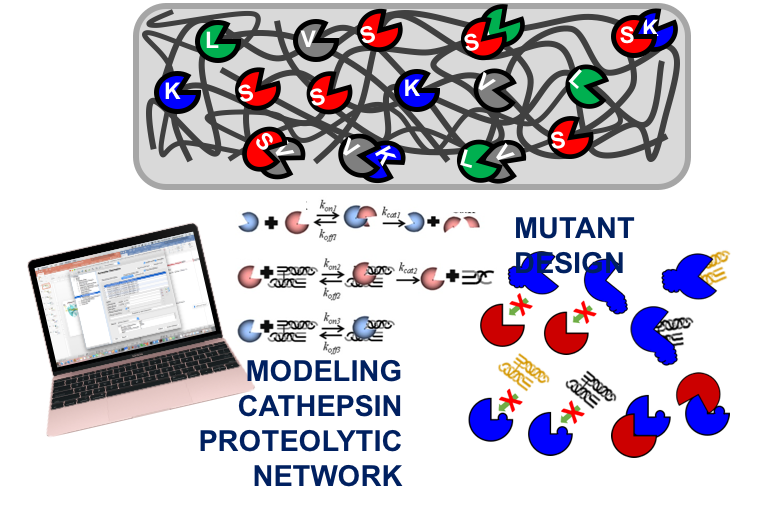Computational framework of parameter estimation of mechanistic models in cancer.
Much of mechanistic cancer modeling revolves around studying the long-term success of co-evolving, complex interaction-driven tumor growth combined with statistical outcomes of treatment. Often, the data available to parameter these mechanistic models is underpowered and it is difficult to accurate the patient-to-patient variability in small, cohort studies. To improve our confidence in parameterization of mechanistic models, I’ve developed a computational pipeline for parameterizing of both in vitro and clinical cohort ordinary differential equation (ODE)-based model systems. The first step is to build the ODE mathematical model, then use L1 Loss Regularization to shrink redundant parameters. Once redundant parameters have been removed, use step-wise parameterization of the ODE model to iteratively estimated parameters of different random subsamples of the full dataset. Selecting the median parameter set as the parameterized for the mechanistic model, in silico predictions can be simulated and compared preclinical data for validation.
- Ferrall-Fairbanks MC, Altrock PM. “Unraveling lymphoma tumor microenvironment interactions with Julia.” Oral presentation at JuliaCon, August 7-11, 2018, University College London, London, UK.
- Ferrall-Fairbanks MC, Rhea I, Shain K, Hawk F, Fradley MG, Altrock PM. “Mathematical Modeling of Amyloidosis Accumulation in the Heart of Patients with Plasma Cell Dyscrasias.” Featured Poster Presentation at the 2019 Moffitt Scientific Symposium, May 1-2, 2019, Moffitt Cancer Center, Tampa, FL
- Altrock PM, Ferrall-Fairbanks MC, Kimmel GJ. “Predictive modeling of co-evolving growth populations.” bioRxiv preprint. doi: 10.1101⁄633750
- a. Ferrall-Fairbanks MC, Glazar DJ, Brady RJ, Kimmel GJ, Zahid MU, Altrock PM, Enderling H. “Re: Simulation analysis for tumor radiotherapy based on three-component mathematical models.” Journal of Applied Clinical Medical Physics. 2019; 20:7:204-205. doi: 10.1002/acm2.12608 PMID: 31145529
